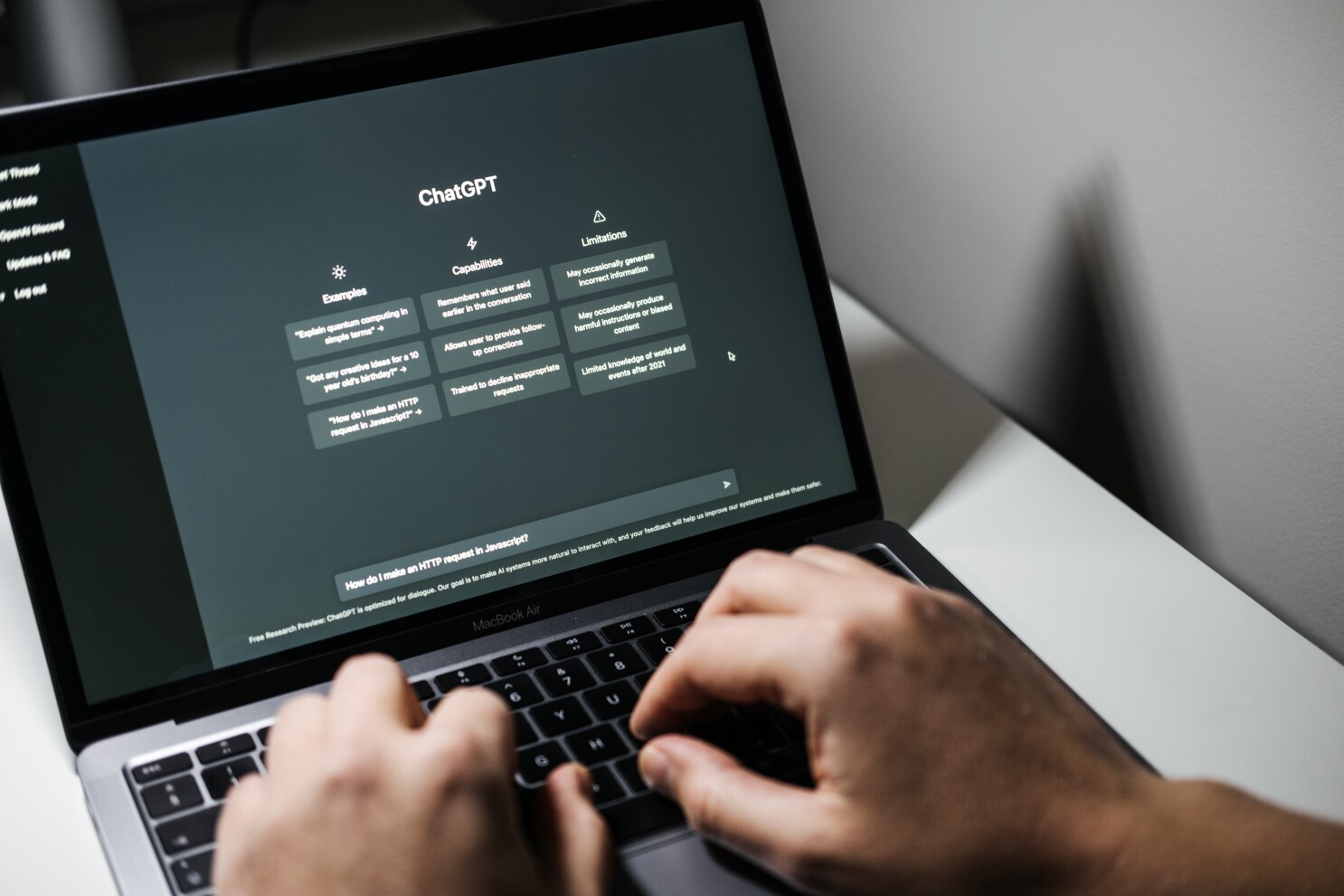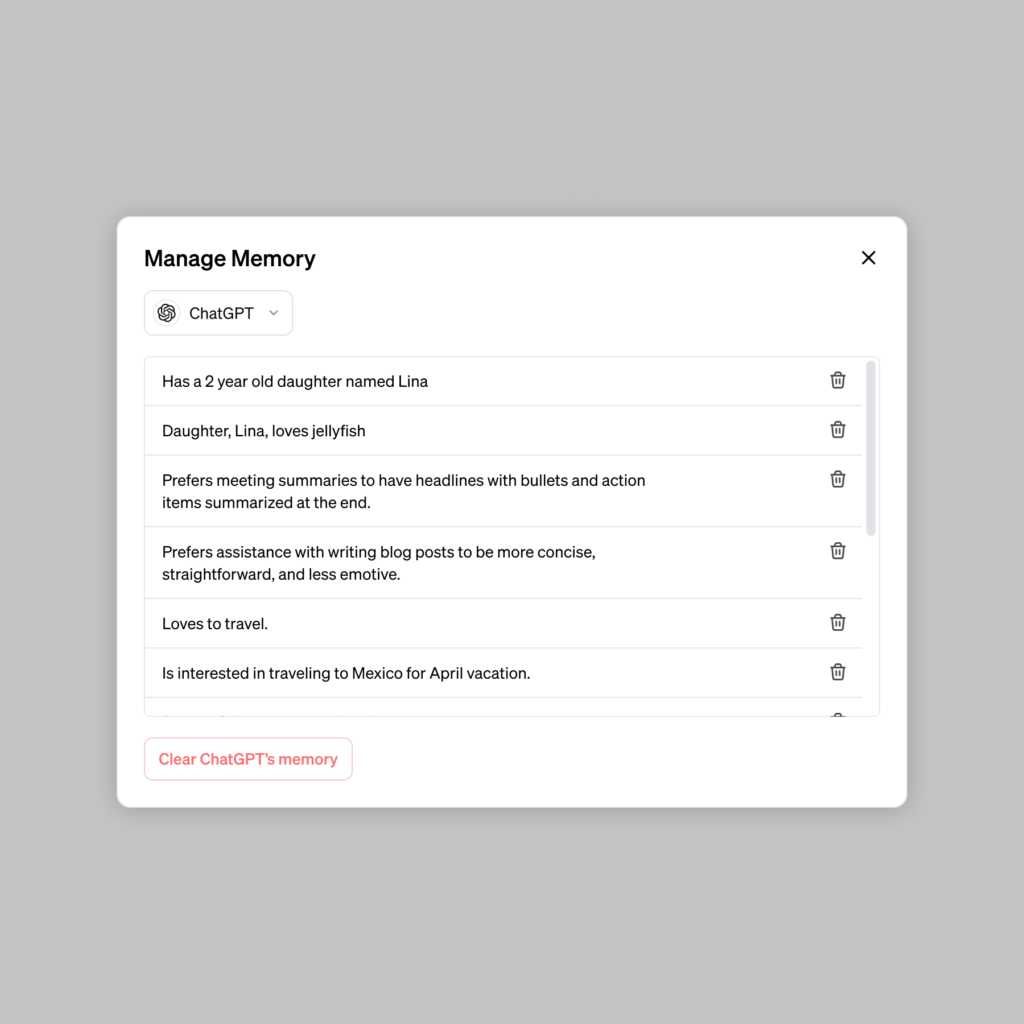
OpenAI introduces a new feature in ChatGPT, integrating a “memory” feature to enhance user experience, aiming for greater intuitiveness and user-centricity. This enhancement aims to transform the user experience by enabling ChatGPT to retain and recall personal information, preferences, and conversational context over time, making interactions with the AI not only more personalized but also significantly more efficient.
Introducing Memory to ChatGPT
The introduction of memory into ChatGPT is a response to a common user experience where repeated interactions felt like starting from scratch, without the AI retaining any knowledge of past conversations. With this update, ChatGPT can now remember specific instructions or details shared by the user—ranging from coding languages preferences to personal likes and dislikes—or gradually learn and store this information autonomously through ongoing interactions. This capability is designed to make ChatGPT more relevant and attuned to individual user needs, significantly enhancing the quality of interaction.
For example, if a user frequently discusses literature and expresses a preference for certain genres or authors, Books GPT, with memory enabled, can recall these preferences and make tailored book recommendations without needing the user to repeat their likes every time. Similarly, educational tools like Tutor Me GPT can adapt their teaching approach based on the learner’s progress and previously covered material, offering a more coherent and customized learning experience.
The potential applications of memory within the GPT ecosystem are vast. From programming assistance that remembers your preferred coding languages and frameworks to travel services that recall your favorite destinations and travel preferences, this feature sets the stage for a future where AI can serve as a truly personalized assistant across various domains.

Credits: Open AI
Balancing Personalization with Privacy
However, the enhancement of memory brings to the forefront critical considerations regarding privacy and data security. Aware of the potential concerns this feature might raise, OpenAI has placed a strong emphasis on user control and transparency. Users have the ability to inquire what information ChatGPT remembers about them, directly command the chatbot to forget certain details, or completely disable the memory feature from the settings. This level of control is crucial for maintaining user trust and ensuring that the personalization offered by ChatGPT does not come at the cost of user privacy.
Furthermore, OpenAI has taken steps to limit the memess explicitly instructed by the user. This precaution is a testament to OpenAI’s commitment to ethical AI development, ensuring that the benefits of personalization are balanced with the utmost respect for user confidentiality and data protection.
To cater to users who desire a conversation with ChatGPT without leaving any memory footprint, OpenAI introduces a Temporary Chat feature. This option allows for a session where ChatGPT interacts without accessing any saved memories or affecting its future interactions based on the current conversation. Designed as a privacy-first option, Temporary Chat ensures that users seeking an anonymous or untracked interaction can still leverage ChatGPT’s capabilities without impacting its long-term memory.
Initial Rollout and Future Plans
As for now, the memory feature is being rolled out to a select group of users for testing, with plans for a broader deployment in the future. This phased approach allows OpenAI to gather feedback and refine the feature, ensuring that it meets user needs while adhering to high standards of privacy and security.
The introduction of memory to ChatGPT marks a significant milestone in the evolution of AI chatbots. By enabling personalized interactions based on retained user information, ChatGPT is poised to become more than just a tool for information retrieval or task assistance; it becomes a personalized companion capable of understanding and adapting to the unique preferences and needs of each user. As OpenAI continues to innovate, the balance between personalization, privacy, and user control remains a priority, guiding the development of ChatGPT towards becoming an even more intelligent, responsive, and user-friendly AI assistant.
Related News:
Featured Image courtesy of Iryna Imago/Shutterstock
